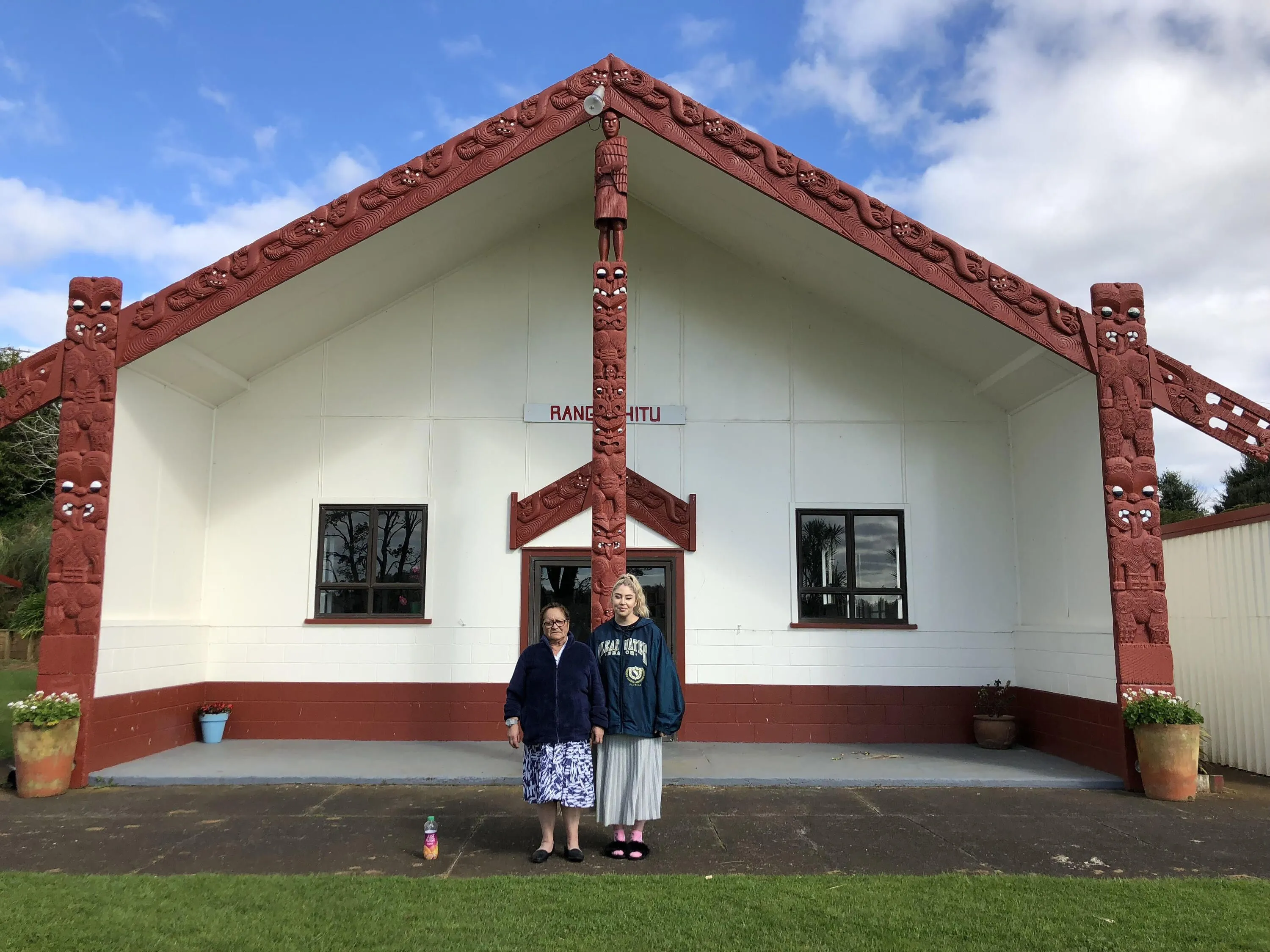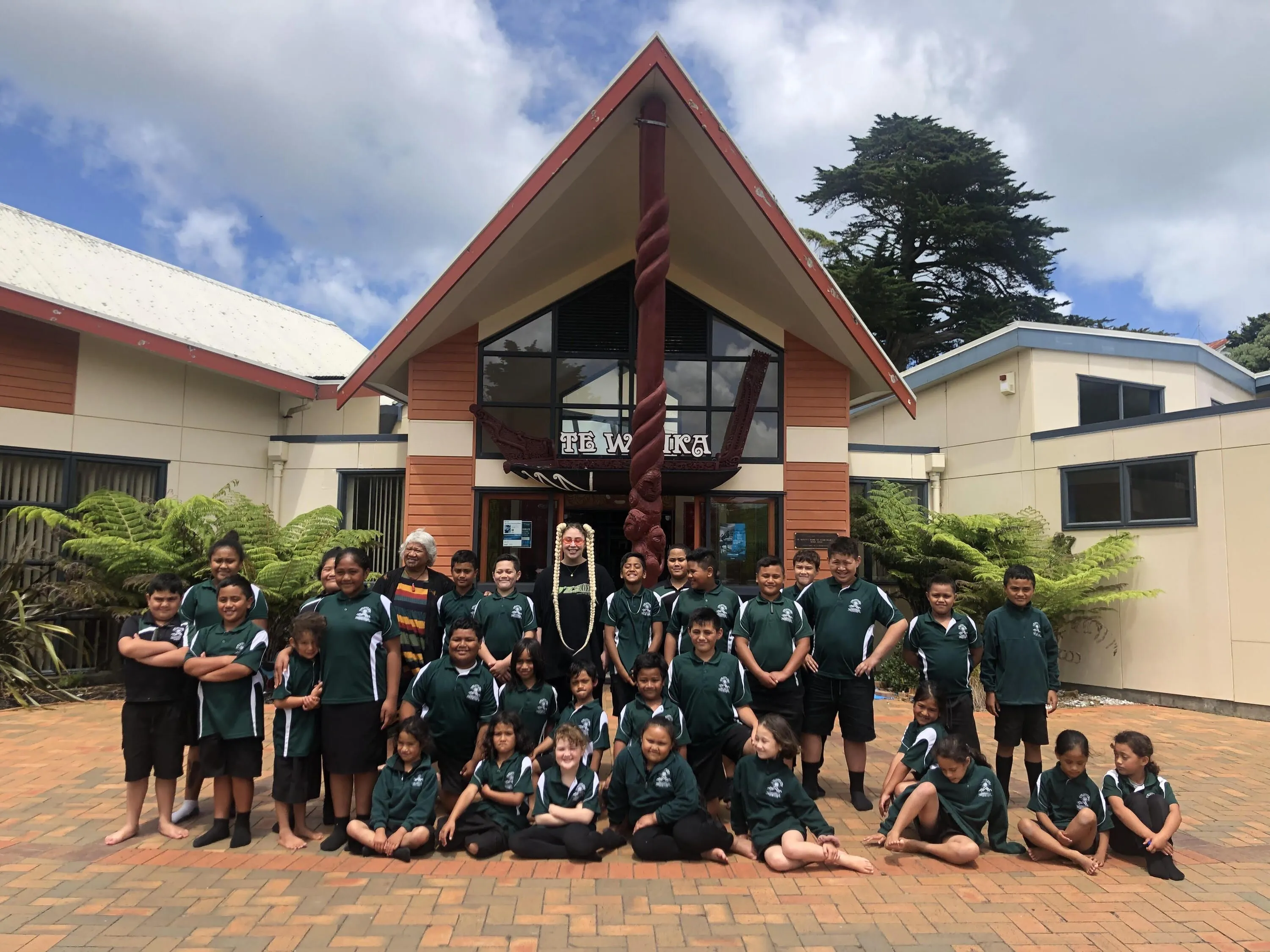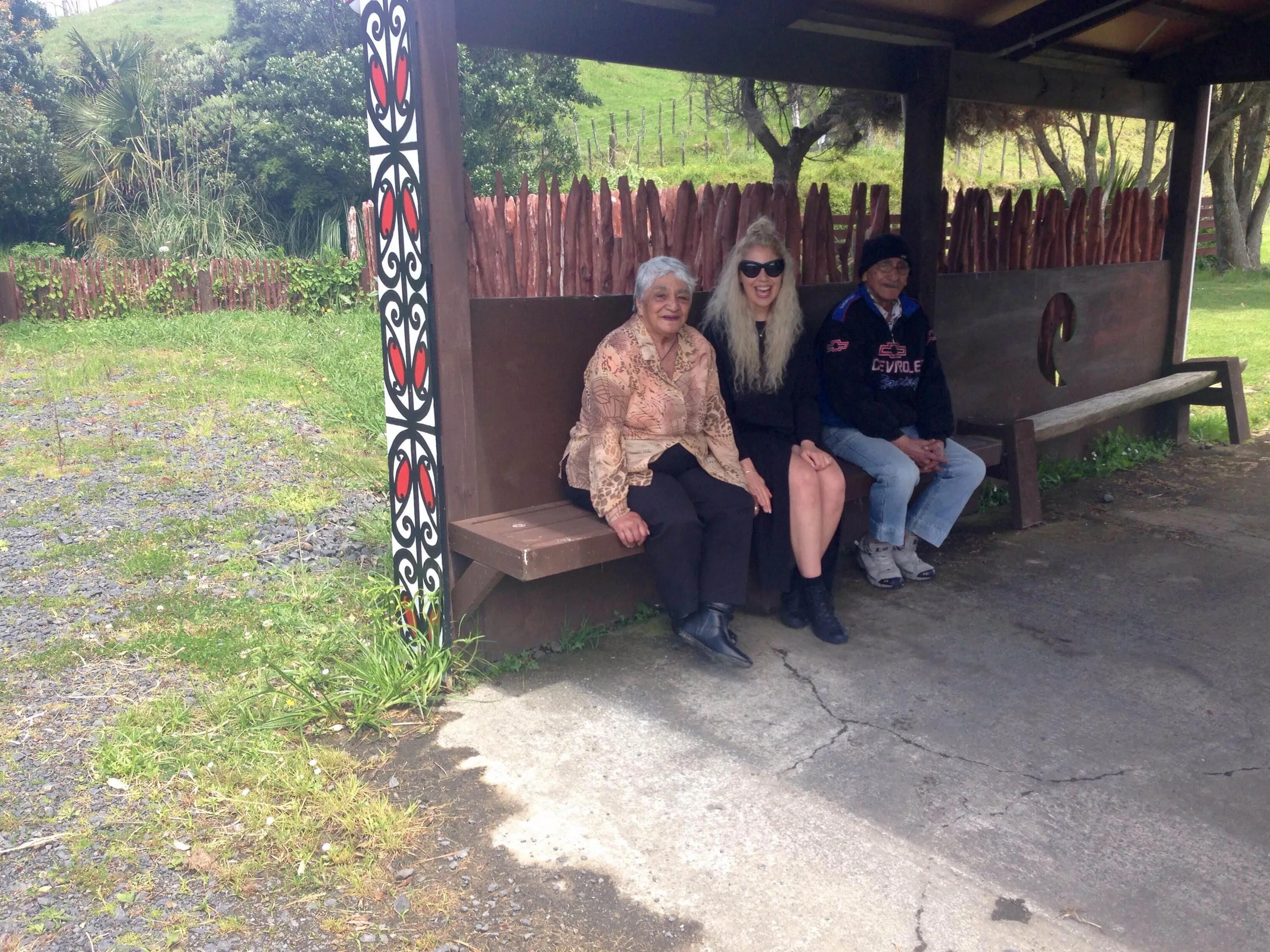"Our Language is Literally Our Identity"
Written by
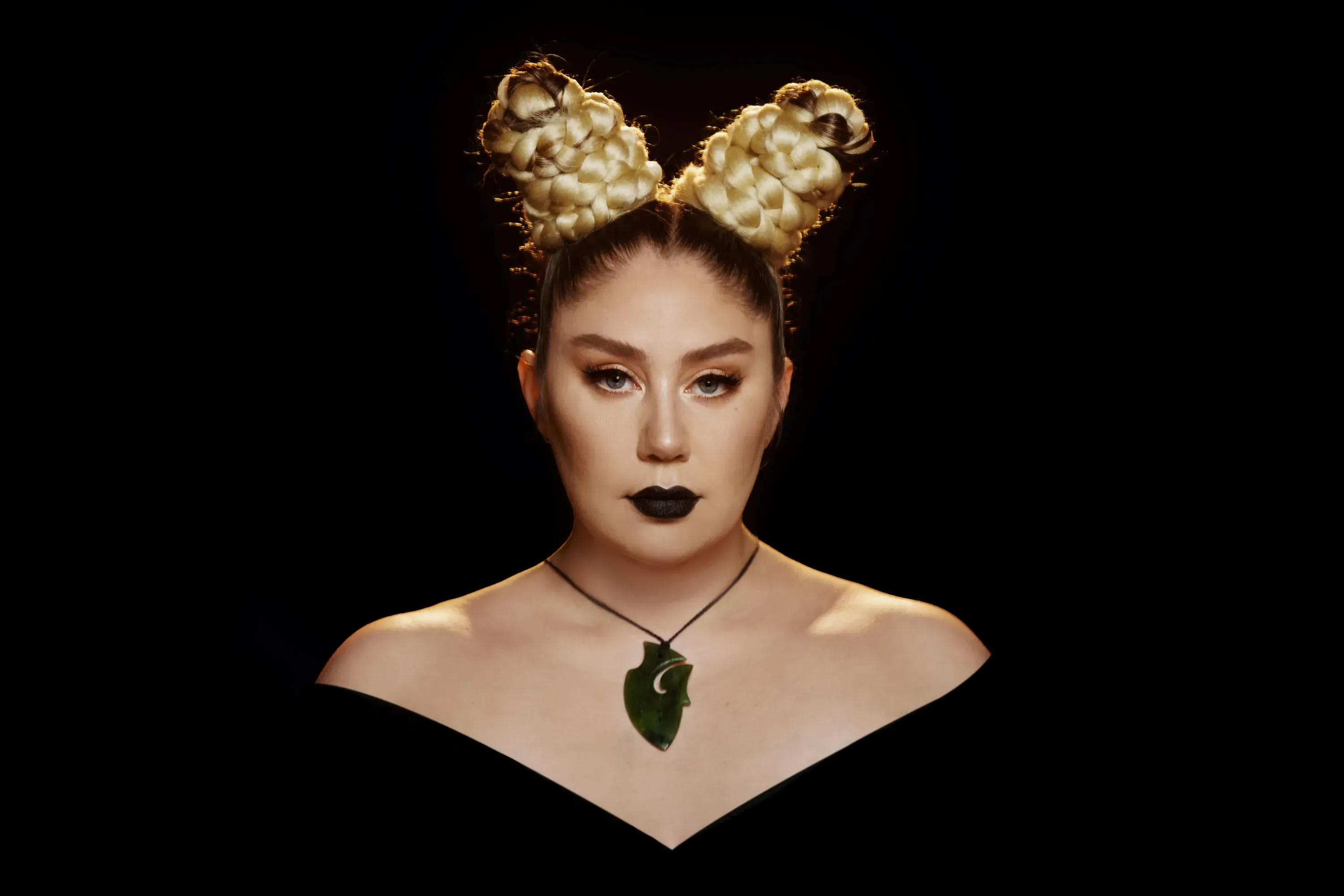
For Em-Haley Walker (Waikato-Tainui, Ngāti Tīpā), navigating two stage personas seems to come naturally.
One persona is Theia, the glittery pop singer who burst onto the New Zealand music scene in 2017 with her debut EP and the single, Roam.
Then there’s TE KAAHU, her new project, which is remarkably different to Theia. Every song features stripped-back production: usually just Walker and a guitar or a piano – always with her soaring voice reaching every corner of the tracks. But the main difference: every song Walker has and will release as TE KAAHU is in te reo Māori.
“Everything with TE KAAHU definitely has a completely different sound, sonically, but also, aesthetically,” says Walker. “It's more old school, the colours are more muted, more earthtones.”
When she isn’t making music as Theia or TE KAAHU, Walker is a proponent and teacher of te reo Māori language skills and tikanga Māori practices. This passion for te reo revitalisation is the driving force behind Walker’s work across the board, but particularly the waiata she’s released thus far as TE KAAHU.
And to celebrate Te Wiki o te Reo Māori (Māori Language Week), Walker is performing live on TikTok Thursday night to promote TE KAAHU in association with TikTok’s dedicated Māori hub. Walker will talk about the project, the messages behind the waiata, and answer questions from fans - both established and curious, new ones the platform could provide.
The hawk rising
TE KAAHU came about during last year’s lockdown, when Tāmaki Makaurau-based Walker finally had time to sit down and start composing again in te reo Māori, something she had done before she launched her career as Theia. She took inspiration from her late great grandmother, Mite Te Aho Karaka Kukutai, who was a renowned composer for her iwi. In this way, Walker can connect with her whakapapa not just through her music.
“I feel like this will be a lifelong kind of thing for me,” Walker says, “and everything that I'm doing in my work that I compose in te reo is an ode to my tūpuna wāhine. I want to be able to honour that to its fullest and be able to do all of my more political riot grrrl stuff as Theia.”
Both projects (Theia and TE KAAHU) are distinct reflections of Walker’s identity. The strength and mana present in her work as TE KAAHU are both there with her work as Theia, and both projects show Walker exploring herself and her place in the world: as Theia, Walker’s music comments on her place as a young human; as TE KAAHU, Walker is exploring her place as a wāhine toa.
Even the name ‘TE KAAHU’ has many personalities.
“TE KAAHU is the short version of te kaahu o rangi,” explains Walker. “Te kaahu is the word for our native hawk that has been in New Zealand for over 1000 years. And the full name te kaahu o rangi means two things: ‘rangi’ is the short version of my kui’s name, which is Rangirara, which means ‘beyond the heavens’ or ‘heavenly resting place’. And so te kaahu o rangi, therefore means Rangi’s hawk. Or because rangi means heaven as well, it can mean ‘hawk of the heavens’.”
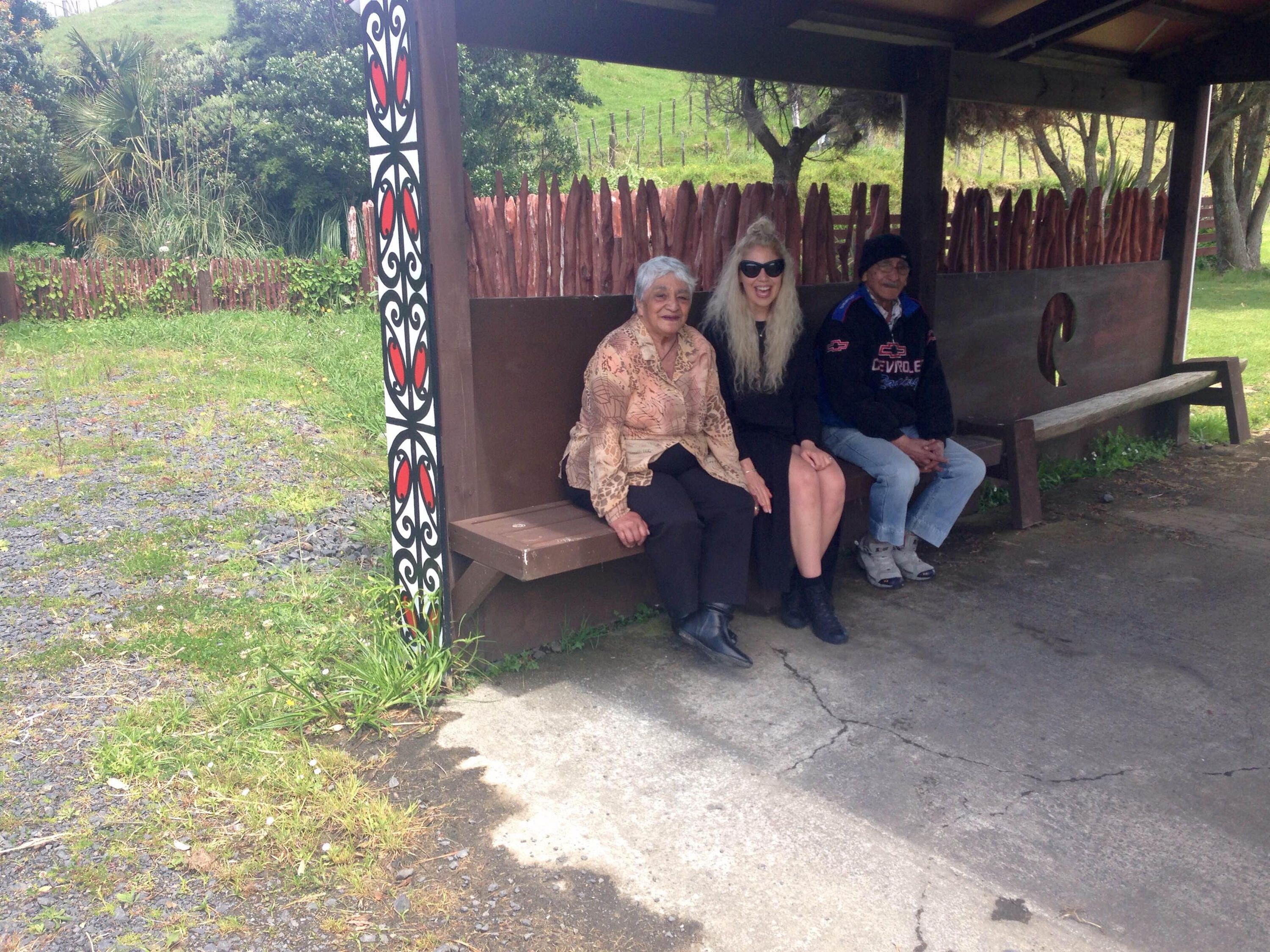
Em-Haley Walker, her kui Rangirara and Uncle Butch sitting at Ōraeroa Marae. Photo: Supplied.
The name carries even more significance, even more layers, in that it pays homage to Walker’s grandmother, who passed away just after she released Roam. “Since she passed away, I’ve seen kaahu more than I have in my life, so I feel like she’s returned to me as a kaitiaki, in the form of a kaahu. Also, a kaahu is a manu rangatira, which is a noble or chiefly, esteemed bird, in our culture. When you would refer to a chief, you would quite often relate them to a kaahu in the strength, the prowess, and the fierceness that they have.”
This fierceness appears in Walker’s own life, as a passionate figure in the revitalisation of te reo. Writing and singing in te reo Māori was a very easy decision for Walker to make, not just because of her drive to reinvigorate the language but also in her passion for the way waiata in te reo are composed.
“We've got really ancient forms of songwriting and composition,” Walker explains, “such as our more traditional waiata like mōteatea, and ngeri, and haka, where the language is so heavily metaphorical. And that’s the traditional way that we compose, but also that was the way that we spoke as well.”
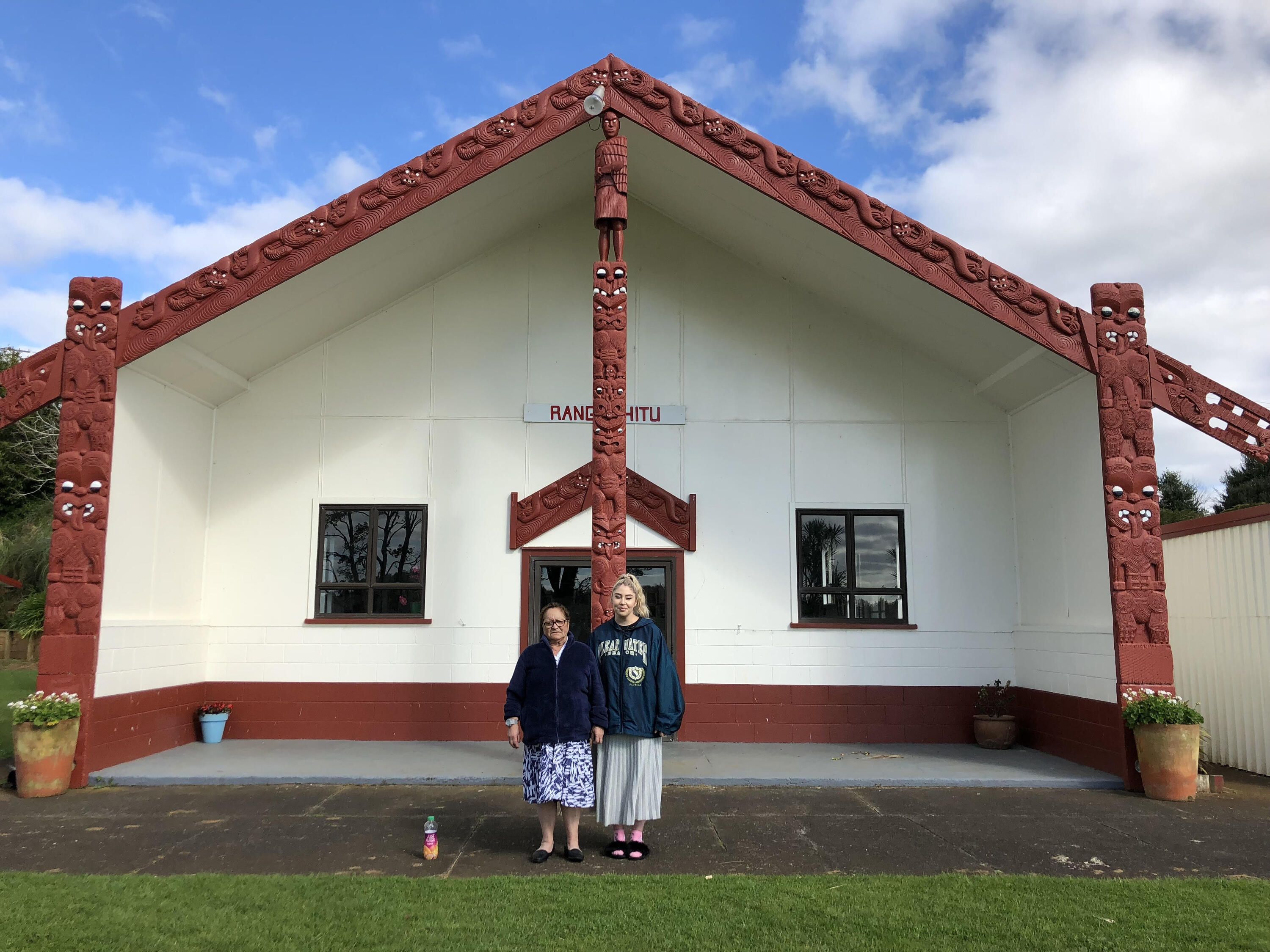
Em-Haley Walker with her great aunt Mata (Rangirara’s sister) - standing outside the wharenui at Tauranganui. Photo: Supplied.
It’s this style of composing, through metaphor and pictures, that really resonates with Walker. “That’s the way that my kui spoke, and that’s the way that our people used to speak. So I suppose that's the way I write, with that purpose in mind to bring back the natural, poetic nature of our language and our songwriting.”
The waiata that Walker has released with TE KAAHU are unique. E Hine Ē is an angelic ballad, a waiata aroha that Walker says “pays homage to our kapa haka, and the love that our people have for the guitar and the many kinds of ways you can utilise a guitar.”
Walker’s most recent release is Rangirara, an ode to her grandmother. “That one definitely has more of a kind of old school 50s-ish sound.”
These are just a few of the waiata that Walker has been working on, for an album she’s looking to release late this year or early 2022. “Every single song is an original composition. They span slightly different genres. And there are more traditional sounding pieces on there too.”
The importance of te reo in music
“Language is so connected to Te Ao Māori. You can’t have one without the other. Our language is literally our identity. You can’t separate them,” says Walker.
“Without the ability to use our reo, our language, our tongue, we are limited in what we can partake in. How can we do pōwhiri if we don't have our reo? How can we perform our karanga if we don't have our reo, our whai kōrero, our speech making if we don't have our reo?”
This, Walker points out, is primarily why Māori were banned from speaking their reo and why it was used as a weapon against Māori in the first place. “When you recognise that the rites and certain cultural aspects in Māoritanga literally revolve around the knowledge and use of our reo – if you strip us of that, what do we have?
“Healing our people is literally down to the reclamation of te reo,” states Walker. “Our reo is integral to strengthening our people and re-educating our people, with everything that's tried to be taken away from us.”
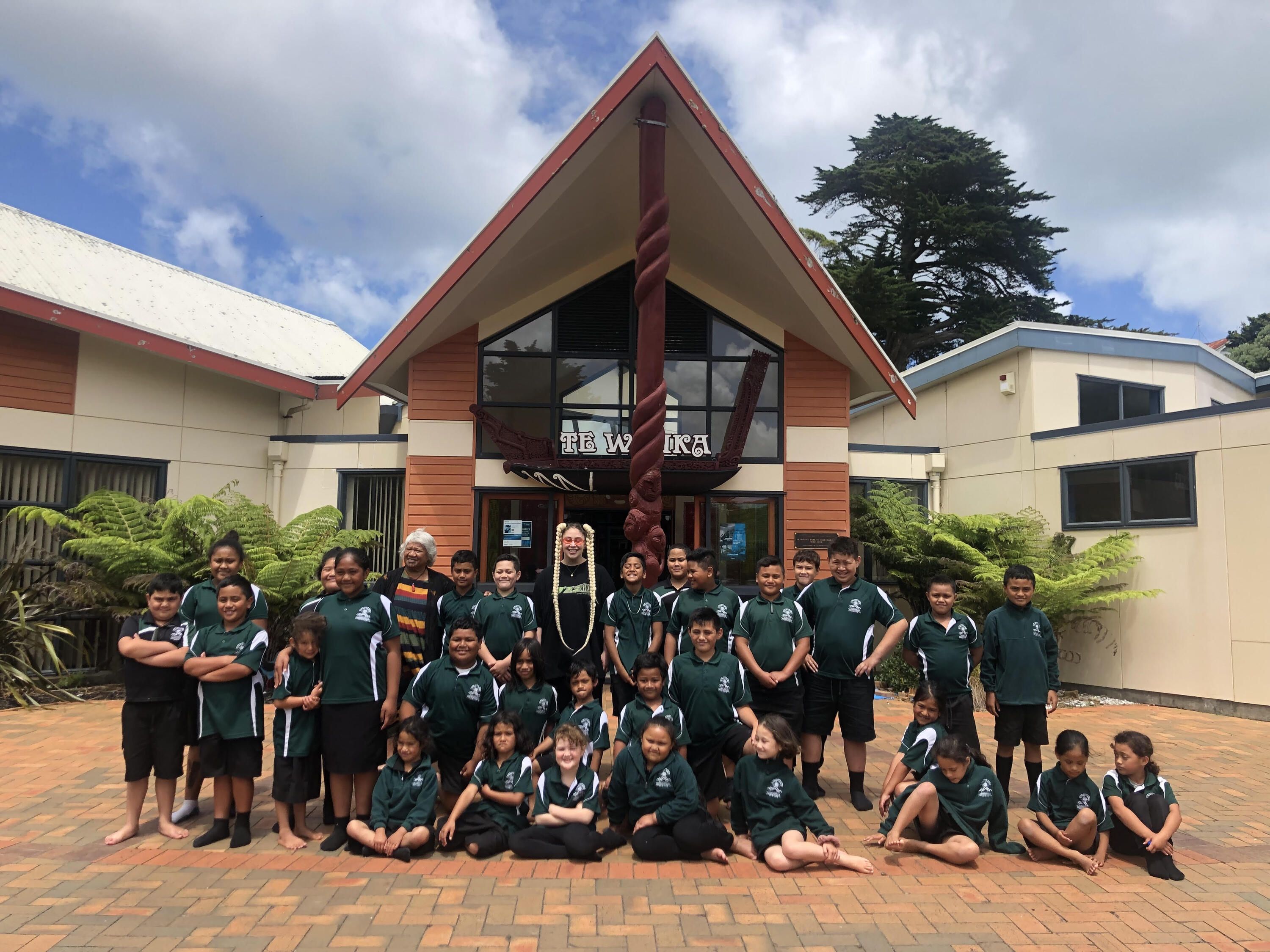
Em-Haley Walker visiting tamariki at Te Kura Kaupapa Māori o Te Pūaha o Waikato. Photo: Supplied.
Walker is also hesitant to laud Māori Language Week. While it brings a national spotlight, she also points out its tokenistic aspects – the need to have a week to try and bring that level of importance to the forefront.
“The hope for me is that I'm starting to see that it's stretching from beyond what is a rather tokenistic single week of the year, to being more part of the culture and language, that it’s stripped out from that week to be more commonly seen – for instance - in everyday news bulletins.”
This shift is happening, Walker says, but only recently.
“My hope is that every single Māori will know their language. And beyond just knowing our language, you know, the more generalised version that came after colonisation, but we’ll know our mita, as in our dialects, and all of the nuances and the beauty of our language that tells every single iwi and hapū apart from each other.”
“’Kei roto i a koe, kei roto i tōu whakapapa Māori - ko te reo rangatira o ngōu tūpuna’,” she says. “Within you, within your essence as a Māori descendant, is your language. The chiefly language of your ancestors.
“It’s your birthright and no matter where you are in your reclamation journey, may you know there are many others at your side. Slowly but surely we are taking back what was stolen from us. Kia mate ururoa!”
